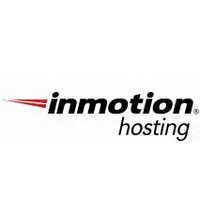Five things a dedicated server excels at and when you need one
Considering opting for a dedicated server? Read this first

The internet has long been recognised as perhaps the most important domain for businesses to succeed. But not everyone has the necessary experience or expertise to adequately leverage its myriad possibilities. As a result, many websites are little more than a collection of outdated and irrelevant information. Although hard to imagine, there’s something even worse, which is an ill-configured or inadequate hosting server.
There are many different options when considering a hosting server. Apart from the total cost, various factors must be considered when deciding the optimal hosting server for your needs, be it shared hosting, VPS, or dedicated.
While shared hosting remains quite popular, it’s biggest advantage is the low cost of entry. But that’s about it. The entire resources of the server, such as RAM and bandwidth are shared with hundreds, if not thousands of other clients, hosted on a single server. The result is painfully slow and sluggish performance, which can be disastrous for businesses and professionals. This is why shared hosting is only preferred for personal websites.
At the other end of the spectrum are Virtual Private Servers (VPS) and dedicated hosting servers. A VPS server is also home to many different clients, but it utilises hypervisor technology to simulate an environment where each client appears to be on a uniquely dedicated machine. The hypervisor technology also permits VPS clients to borrow resources from one another, such that clients which need more resources are allotted resources from other clients that aren’t using their assigned allocation of resources. In this manner, a VPS hosting guarantees availability of resources, and thus performance, which isn’t possible with a shared hosting server.
But if you value stability, reliability and performance, your only recourse is to opt for a dedicated hosting server. In a dedicated hosting environment, the entire resources of the server are utilised by a single tenant, instead of being spread across multiple users or hosted websites. This means that your website can leverage the server's full CPU, RAM, bandwidth, and storage resources, as it doesn't share them with other sites. As you have the complete resources of the server available to you, dedicated servers boast of many advantages over the other hosting servers.
Inmotion hosting is offering a staggering 50% off its bare metal and managed dedicated servers on a 3-month plan. Offer ends March 31st. Harness the power of the command line with full root access on the $57.50/month Essential Quad-core Xeon server.
- We've also rounded up the best web hosting services
1. Performance
A dedicated hosting server environment, is also known as a single tenant server. This is because you have exclusive use of the server and all its resources.
Most dedicated hosting servers are equipped with vast amounts of RAM, anywhere from 8-64 GB, coupled with SSD storage devices, which boast of almost 100 times faster data access speeds than regular hard disk drives. Not only that, most dedicated server hosting plans also offer the choice of anywhere from 4-12 CPU cores, with the possibility of opting for more, if needed.
Sign up to the TechRadar Pro newsletter to get all the top news, opinion, features and guidance your business needs to succeed!
With no other clients clamouring for the resources of the server such as CPU cores, RAM and bandwidth, you are assured of optimum performance even when you experience sudden spikes in visitor traffic.

2. Security
Having multiple tenants on a single server, as the case is with shared hosting is a terrible idea, especially if you value privacy. While independent silos as provided by Virtual Private Servers (VPS) are a far safer option when compared with shared hosting, there’s still a risk of a determined miscreant, or malicious attack permeating through the hypervisor layer and into your server space.
This is why dedicated server hosting is the only viable option if security is your chief concern. Most dedicated hosting providers include DDoS protection and a slew of security measures as part of their offerings. Couple this with the freedom to deploy software solutions of your choice to ward off attackers, snoopers, spammers, and malware and you have the most secure server deployment imaginable.
3. Deployment flexibility
With a dedicated server and its vast resources at your disposal, you have absolute control over how to use them to best serve your business. To most laymen, a hosting server is good only for deploying websites. While you can use your dedicated server to host your own website, they can be put to even more robust uses, such as deploying a file or mail server, or your own VPN service.
Depending on your business needs, you can deploy a host of applications for different purposes, with no restrictions whatsoever. This isn’t the case with other hosting solutions, such as shared hosting, where the hosting provider will often restrict the technologies or applications you can use on the server.
4. Control
With dedicated server hosting, you get unrestricted, or root access to the servers. This means that you can tailor the configuration to your needs. After all, an e-commerce platform needs a different configuration than would a social networking website. This degree of control is unavailable in a shared hosting server.
However, if you lack the requisite technical expertise, and don’t have a system administrator available at hand, you’re unlikely to be able to leverage the advantage of having root access.

5. Scalability
Most dedicated hosting providers give you the choice to customise the hardware to your specifications. This means you can choose how much disk space, RAM and even CPU’s you want on your server.
Should you require more resources in future, to accommodate the growth of your business, you can request the hosting provider to make the necessary changes.
A dedicated hosting server is far easier and convenient to adapt to your changing needs than setting up one yourself manually.
All these features however come at quite a considerable cost. Unless you really need one, a dedicated server can be an overkill, and seemingly a drain on financial resources.
When to switch to a dedicated server
You should consider switching to a dedicated server if the following situations describe your needs:
1. You value privacy and security
While a VPS hosting is still far more secure than shared hosting, there’s always the possibility of a committed attacker breaching through the hypervisor layer into your server space. The single tenant dedicated hosting platform, with its unique IP address, and a slew of security measures provides far greater security than its peers.
The absence of other claimants on the server also ensures safety of your data, which is otherwise vulnerable to attacks on shared hosting plans.
Couple this with the freedom to deploy additional software such as firewall, anti-viruses, anti-malware, etc., and dedicated hosting gives far greater peace of mind.
2. You want optimum performance
Multi-tenant hosting solutions such as shared hosting suffer from the noisy-neighbour effect, a situation where the resources of the server are claimed by a co-tenant, leaving little for your own needs.
A VPS server overcomes this by guaranteeing the amount of resources available to you, and also provides the possibility of borrowing more resources should you need it. This however is subject to availability, and you can’t always count on such additional resources tidying you over.
A dedicated server is immune to the noisy neighbour problem since its resources are 100% dedicated to you at all times, which ensures optimum performance at all times.
3. You want greater control over your server
You have absolute control over the use and utilization of the server resources when you opt for dedicated hosting. Install any software, and configure it how you want to best cater to your needs.
You might also want to check out our many hosting guides:
- Best WordPress hosting providers
- Best cloud hosting providers
- Best Linux web hosting services
- Best e-commerce hosting
- Best dedicated server hosting
- Best small business web hosting
- Best Windows hosting services
- Best managed web hosting
- Best business web hosting
- Best green web hosting
- Best colocation hosting
- Best email hosting providers
- Best web hosting resellers
- Best VPS hosting providers
- Best shared web hosting
- Best cheap web hosting
- Best website hosting services
Shashank Sharma is a trial lawyer in Delhi, India. Long before his foray into the world of litigation, he started his career by writing about Linux and open source software. Over the years, Shashank has also written various articles and reviews for TechRadar Pro, covering web hosting providers and website builder tools.

